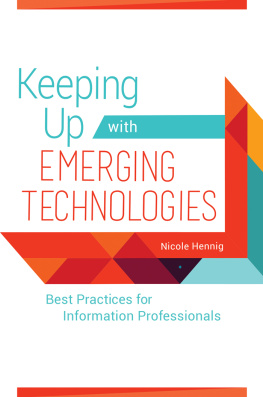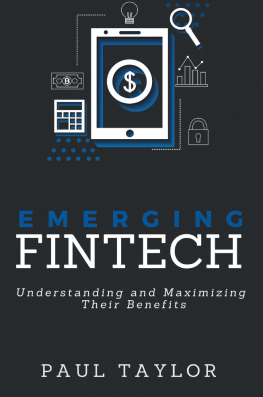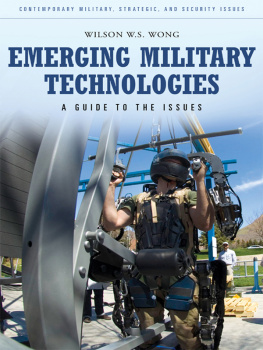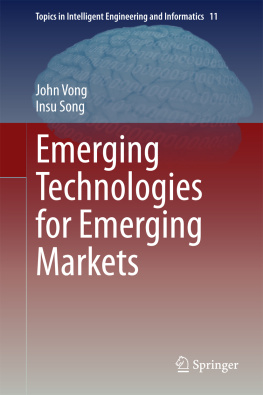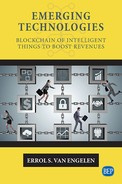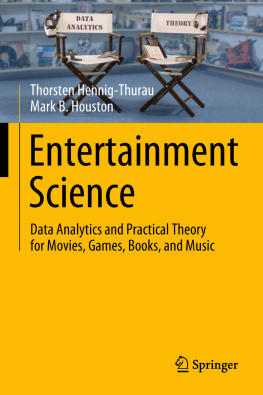Nicole Hennig - Keeping Up with Emerging Technologies
Here you can read online Nicole Hennig - Keeping Up with Emerging Technologies full text of the book (entire story) in english for free. Download pdf and epub, get meaning, cover and reviews about this ebook. year: 2017, publisher: ABC-CLIO, genre: Home and family. Description of the work, (preface) as well as reviews are available. Best literature library LitArk.com created for fans of good reading and offers a wide selection of genres:
Romance novel
Science fiction
Adventure
Detective
Science
History
Home and family
Prose
Art
Politics
Computer
Non-fiction
Religion
Business
Children
Humor
Choose a favorite category and find really read worthwhile books. Enjoy immersion in the world of imagination, feel the emotions of the characters or learn something new for yourself, make an fascinating discovery.
- Book:Keeping Up with Emerging Technologies
- Author:
- Publisher:ABC-CLIO
- Genre:
- Year:2017
- Rating:3 / 5
- Favourites:Add to favourites
- Your mark:
- 60
- 1
- 2
- 3
- 4
- 5
Keeping Up with Emerging Technologies: summary, description and annotation
We offer to read an annotation, description, summary or preface (depends on what the author of the book "Keeping Up with Emerging Technologies" wrote himself). If you haven't found the necessary information about the book — write in the comments, we will try to find it.
Keeping Up with Emerging Technologies — read online for free the complete book (whole text) full work
Below is the text of the book, divided by pages. System saving the place of the last page read, allows you to conveniently read the book "Keeping Up with Emerging Technologies" online for free, without having to search again every time where you left off. Put a bookmark, and you can go to the page where you finished reading at any time.
Font size:
Interval:
Bookmark:

Keeping Up
with Emerging
Technologies
Best Practices for
Information
Professionals
Nicole Hennig

Copyright 2017 by Nicole Hennig
All rights reserved. No part of this publication may be reproduced, stored in a retrieval system, or transmitted, in any form or by any means, electronic, mechanical, photocopying, recording, or otherwise, except for the inclusion of brief quotations in a review, without prior permission in writing from the publisher.
Library of Congress Cataloging-in-Publication Data
Names: Hennig, Nicole, author.
Title: Keeping up with emerging technologies : best practices for information professionals / Nicole Hennig.
Description: Santa Barbara, California : Libraries Unlimited, an imprint of ABC-CLIO, LLC, [2017] | Includes bibliographical references and index.
Identifiers: LCCN 2017008846 (print) | LCCN 2017021555 (ebook) | ISBN 9781440854415 (ebook) | ISBN 9781440854408 (acid-free paper)
Subjects: LCSH: LibrariansEffect of technological innovations on. | Technological literacy. | Technological innovationsInformation resources. | Information technologyInformation resources. | LibrariesInformation technologyPlanning. | LibrariesInformation technologyEvaluation. | Public services (Libraries) | Library usersEffect of technological innovations on.
Classification: LCC Z682.35.T43 (ebook) | LCC Z682.35.T43 H46 2017 (print) | DDC 025.00285-dc23
LC record available at https://lccn.loc.gov/2017008846
ISBN: 9781440854408
EISBN: 9781440854415
21 20 19 18 171 2 3 4 5
This book is also available as an eBook.
Libraries Unlimited
An Imprint of ABC-CLIO, LLC
ABC-CLIO, LLC
130 Cremona Drive, P.O. Box 1911
Santa Barbara, California 93116-1911
www.abc-clio.com
This book is printed on acid-free paper 
Manufactured in the United States of America
Endnotes
Endnotes
Endnotes
Endnotes
Endnotes
Endnotes
Endnotes
Endnotes
Endnotes
I would like to thank my colleagues at the MIT Libraries, where from 1999 through 2013 I had the pleasure of working with so many smart, engaging, and creative library professionals. I would especially like to thank Nina Davis-Mills and Steven Gass, who approved my many requests for conference attendance, continuing education, and budgets for experimenting with new technologies. I would also like to thank our user experience groupa group that excelled at working together as a new department and had so much passion for improving library services for the MIT community. Thank you!
If youve been an information professional for any length of time, youve certainly heard over and over that technology is changing quickly and exponentially, and that its very difficult to keep up. Its a very popular topic for articles, workshops, conference sessions, and books.
Youve probably felt overwhelmed at times and struggled to keep up with the flow of information about new technologies. Youve seen trends come and go, and wondered how and where to invest your limited time and budget.
You might have a position in your organization for an emerging technologies librarian, or something similar. If not, that role might be a part of other job roles that you or your colleagues have. You might need to write job descriptions for those kinds of positions. Or you might be a student in library school with an interest in technology positions in librariesmaybe you want to become the person your colleagues rely on for keeping up. This book is for all of you.
Just about every source Ive seen on this topic aims to inform readers about specific trends and technologies coming in the near future. These are quite useful and they often include a section or chapter on how to keep up. But it can be hard to find one complete resource that brings together methods for keeping up and bringing new technologies into your service offerings.
This book aims to consolidate those methods in one place. It will begin by covering techniques for gathering information about emerging technologies and about user needs. Ill recommend several types of resources to follow and Ill discuss strategies for finding time to keep up with all of this information in the midst of your busy life.
Since every librarian has different skills, talents, temperaments, and roles to play, Im going to suggest that we use two broad categories of skills in order to discuss this kind of work: visionaries and implementers. Ill define those two types, and discuss how to use these skills sets in complementary ways in your organization.
Next, Ill recommend sources for following ethical debates about new technologies, aligning your work for inclusiveness, considering diversity and accessibility, and considering the digital divide.
Well then look at methods for evaluating and analyzing what youve found, matching technologies with user needs, designing small experiments and evaluating the results, presenting to and persuading decision-makers, and passing on projects to implementers.
of this book, well look at how to define the role of emerging technologies librarian, along with skills and talents needed, and sample job descriptions. Ill include what to do if you are a small organization or a one-person library.
In , Ill conclude with a bibliography of books, blogs, articles, and websites for learning more. At the end, Ive included a guide to some of the best mobile apps for doing this kind of work.
This book is designed so that you can go back and refer to the chapters you care about most, as youre doing this type of work. My hope is that this handbook will be useful for years to come, no matter which technologies are on the horizon.
The good news is that it is possible to deal with the information deluge without feeling constantly overwhelmed. In my 14 years working at the MIT Libraries (first as web manager/usability specialist, then as head of the user experience department), I had a chance to try out many different methods and techniques, and to benefit from the ideas of experts outside of our field. In this book, Ive brought together all of the most useful methods (tried and tested), in order to make this information easy to use in your library.
When you have a plan and a set of methods like these, you can design library programs and services that make a strong positive difference in the lives of your users. And you can keep up with the fast changing world of new technologies.
Id like to begin by discussing some of the skills, talents, and temperaments that are best for this kind of work. Depending on how big or small your organization is, you can divide these skills into different roles for different people.
There are some skills and talents that are useful for all of us to have, and others that might be best split into different roles: visionary versus implementer.
Often there are people who excel at visionary and creative thinking, but have no patience for the details of implementation. There are others who are great at managing large projects, keeping track of every detail, and focusing on getting everything done. They may not be so good at creative, visionary thinking. You probably know specific people who match these types. These skills and temperaments overlap in many peopleso perhaps its better viewed as a continuum. Think about where you fall on that continuum.
Font size:
Interval:
Bookmark:
Similar books «Keeping Up with Emerging Technologies»
Look at similar books to Keeping Up with Emerging Technologies. We have selected literature similar in name and meaning in the hope of providing readers with more options to find new, interesting, not yet read works.
Discussion, reviews of the book Keeping Up with Emerging Technologies and just readers' own opinions. Leave your comments, write what you think about the work, its meaning or the main characters. Specify what exactly you liked and what you didn't like, and why you think so.

